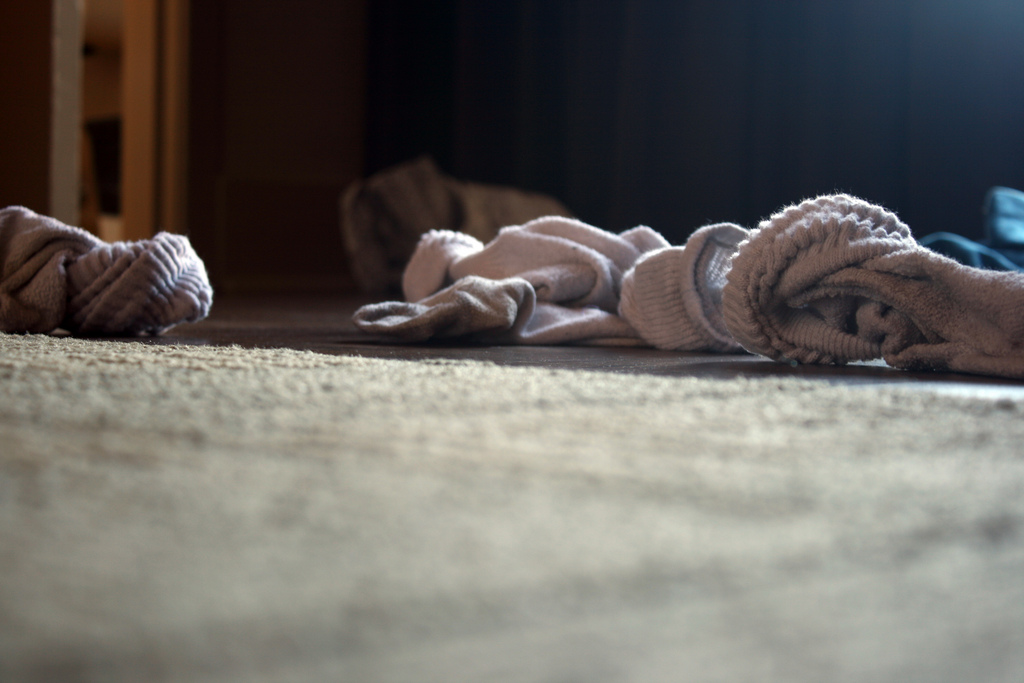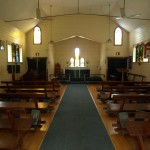 One of the distinctives of my blog here at Patheos is that along with straightforward discussion about my Christian (and, specifically, Lutheran) faith, I also do a fair amount of critiquing of the times when we as Christians fail to live up to the call of our faith.
One of the distinctives of my blog here at Patheos is that along with straightforward discussion about my Christian (and, specifically, Lutheran) faith, I also do a fair amount of critiquing of the times when we as Christians fail to live up to the call of our faith.
Within Christian culture, there is oftentimes a fear that speaking out about the dark things that sometimes happen in Christian community–or even just about the general day-to-day sins that we as Christians commit–is the wrong thing to do. We fear that if we are honest about the failings and sins within our community that it will discredit our faith. Sometimes Christians will say (or imply), “Don’t air your dirty laundry. Keep it in-house.”
But here’s the thing. If we think that people outside the faith don’t know about our dirty laundry, we are kidding ourselves. We’re not going to give them information that is news to them. Telling the truth is never bad witness! Our Savior is “the Way, the Truth, and the Life.” If we fail to be people of the truth, we have failed to follow Him.
I don’t want to be a Christian who pushes unbelievers further away from faith. No way. I take that seriously, and I wrestle with it. Recently, my friend Neil Carter over at Godless in Dixie quoted a critique I had made of evangelical Christianity in regards to their approach to race relations in this country. I had mixed feelings about this quotation. What I said was true, but would it push people away from God?
As I continued to think things through, I came to this conclusion: the bottom line is that covering up truth is never going to be a way to draw people to faith. Rather, covering up truth is precisely what is going to push them further away. Certainly, there is a wide range of speech and behavior on any particular matter in evangelicalism. There are tons of good things to point to, but there are also some serious issues that do arise and do need to be addressed. The way a large number of evangelicals have responded to the current discussion and events surrounding race is of great concern and does need to be addressed. Of course it can be tough to admit to someone who isn’t a Christian that we have some problems, but we always serve God best when we are people of truth.
Can we as Christians be a people who are willing to hear critique from those outside the faith without immediately jumping to defensiveness? That is the standard I try to set for myself. Sometimes I fail, but that is my goal. I’m an evangelical. I do believe in original sin as something that infects all people across the board. That means us too, as Christians, by the way. We may be in the process of being made new in Christ, but there is still that “old Adam” to contend with daily. But I also believe in the imago Dei, that every person is created in the image of God. Every person then has inherent worth and dignity. That includes those who are not Christians. That means that as people of inherent worth, they have something to teach us too.
One of the blessings of mixing with the atheist community has been the way people who are drawn to atheism tend to have very good critical thinking skills. This is not to say that all of them do, and it is not to say that no Christians have good critical thinking skills. But it’s just a trait that is generally present among atheists.
What if, instead of getting defensive, we could look at this trait as positive in general? This would not mean having to agree with atheists at all times. But it would mean being open to learn from them. It would mean at the bare minimum listening to their concerns about and critiques of Christians without defensiveness. Hey, what does it hurt to understand someone else’s point of view better? And beyond just listening, what if such folks could help us see the dark spots in the Church and begin to root them out? What if their concern for the truth could help us live up to our call as followers of Jesus, the Truth?
I do sometimes encounter some militant atheists who will not be pleased with anything I say or do. But it’s ok. I’m trying to learn to avoid defensiveness. Chances are, they may have encountered some really hurtful Christians. Am I going to get mad at them for being angry about it? Or am I just going to turn the other cheek and continue to try to walk the path of discipleship?
I really do believe that however painful it can be to talk about the dark areas in the Church, we really don’t have any other alternative as people who follow Jesus, the Truth. Covering up the tough stuff or pretending it doesn’t exist doesn’t help us grow as disciples of Jesus, and it doesn’t help our Christian witness in the general culture.
This post is more addressed to the Christian community. Stay tuned for the next post where I will address those who are not Christians and answer the question, “Well, if the Church is so flawed, why the heck do you stay?”
——————-
Community discussion guidelines:
Because this is a Christian blog, the things I’m talking about will obviously be topics that people feel strongly about in one direction or another. Please keep in mind that this is a place for substantive, respectful conversation. All perspectives are welcome to discuss here as long as all can treat each other with kindness and respect. Please ignore trolls, refuse to engage in personal attacks, and observe the comment policy listed on the right side of the page. Comments that violate these guidelines may be deleted. For those who clearly violate these policies repeatedly, my policy is to issue a warning which, if not regarded, may lead to blacklisting. This is not about censorship, but about creating a healthy, respectful environment for discussion.
P.S. Please also note that I am not a scientist, but a person with expertise in theology and the arts. While I am very interested in the relationship between science and faith, I do not believe I personally will be able to adequately address the many questions that inevitably come up related to science and religion. I encourage you to seek out the writings of theistic or Christian scientists to help with those discussions.
———————-
photo credit: quinn.anya via photopin cc












